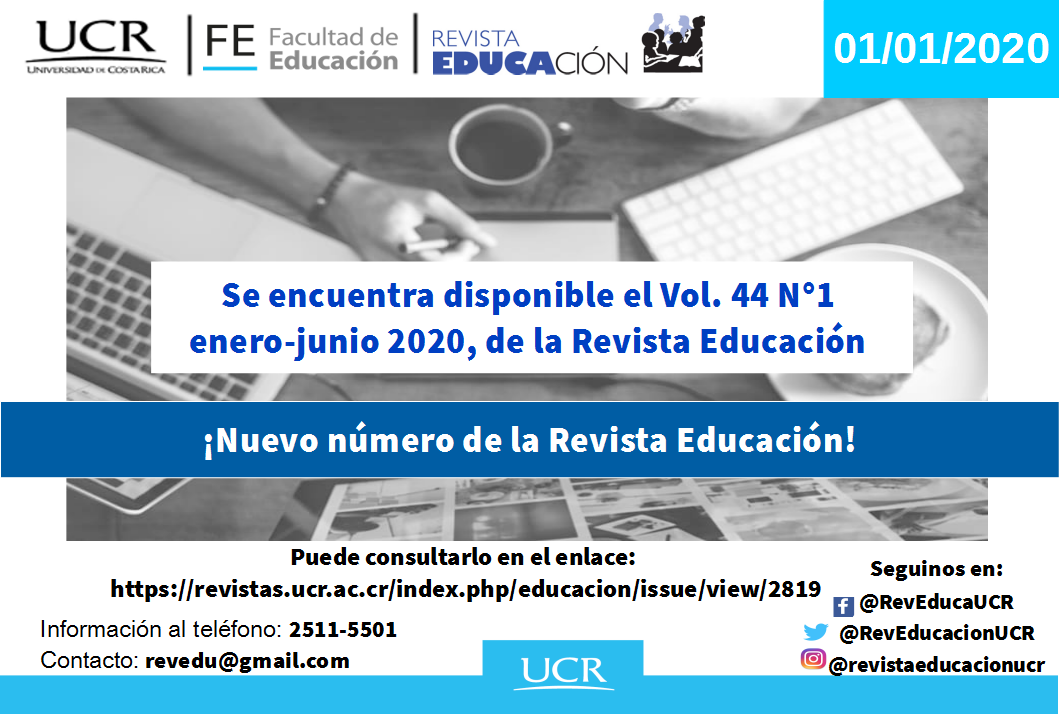Abstract
This study provides a personalized interpretation on the use of Information and Communication Technologies (ICT) at schools with the objective of demonstrating the importance of teachers as educators, particularly with regards to questioning anthropological dynamics of learners which include intellectual, volitional and emotional aspects. Teachers have a different approach towards these dynamics than do ICTs and teacher motivation is not comparable to that of being perceived as a mere facilitator of information. Thus, through a critical review of relevant studies regarding use of technology at schools by authors with a perspective of comprehensive personalism, it is argued that there is an anthropological need for a teacher-student encounter to appropriately contribute to the personal development of the learner. It is concluded that this encounter may be sustained and reinforced by ITCs as a specific support mechanism and that this interpersonal relationship cannot be replaced by ICTs. Thus, educational systems must either relinquish the use of ICTs in favor of other non-technical skills or use ICTs in such a manner where its use can be reviewed, assessed and limited without losing sight of the obsolete and intuitive nature associated with learning through technology and highlighting the importance for human beings to acquire other skills unrelated to technology.
References
Academia Americana de Pediatría [AAP] (2016). Media and Young Minds: Council on Communications and Pediatrics. Pediatrics, 138(5), 1-8. doi: https//:doi.org/10.1542/peds.2016-2591
Agencia EFE, (2 agosto del 2018). Dispositivos electrónicos afectan biodesarrollo a entre 10 y 15% de niños. Sección Edición América. Recuperado de https://bit.ly/33wNI8f
Allen, R. T. (2014) Ethics as Scales of Forms. Newcastle: Cambridge Scholars.
Beland, L.P. y Murphy, R. (2016). Communication: Technology, Distraction & Student Performance. Labour Economics, 41, 61-76. doi: https//:doi.org/10.1016/j.labeco.2016.04.004
Burgos, J. M. (2003). Antropología: una guía para la existencia. Madrid: Palabra.
Burgos, J. M. (2012). Introducción al personalismo. Madrid: Palabra.
Burgos, J. M. (2015). La experiencia integral. Madrid: Palabra.
Burgos, J. M. (2019). Wojtyla's Personalism as Integral Personalism. Quaestione disputate, 9 (2), 91-111.
Carr, N. (2011). Superficiales: ¿qué está haciendo Internet con nuestras mentes? Madrid: Taurus.
Crosby, J. F. (2007). La interioridad de la persona humana. Madrid: Encuentro.
Dunkley, V. (2015). Reset Your Child's Brain: A Four-Week Plan to End Meltdowns, Raise Grades, and Boost Social Skills by Reversing the Effects of Electronic Screen-Time. Novato, CA: New World Library.
Enkvist, I. (2012). La buena y la mala educación. Madrid: Encuentro.
Feinstein, S. (2006). The Praeger handbook of learning and the brain. Westport, CT.: Praeger.
DJO. (13 diciembre, 2017). Francia prohíbe el uso de móviles en los colegios… hasta en el recreo. El mundo. Recuperado de https://bit.ly/2Gc64Cv
Fuchs, T. y Wössmann, L. (2005). Computers and Student Learning: Bivariate and Multivariate Evidence on the Availability and Use of Computers at Home and at School. Ifo Working Paper, 8, 1-28.
Guardini, R. (2002). Las etapas de la vida. Madrid: Palabra.
Guimón, P. (2019, 24 marzo). Los gurús digitales crían a sus hijos sin pantallas. El País. Recuperado de https://bit.ly/2KOKXqv
Heffler, K.F. y Oestreicher, L.M. (2016) Causation Model of Autism: Audiovisual Brain Specialization in Infancy Competes with Social Brain. Medical hypotheses, 91, 114-122. doi: https://doi.org/10.1016/j.mehy.2015.06.019
Konrath, S. H., O’Brien, E. H. y Hsing, C. (2011). Changes in Dispositional Empathy in American College Students Over Time: a Meta-Analysis. Personality and Social Psychology Review, 15(2), 180-198. doi: https://doi.org/10.1177/1088868310377395
L’Écuyer, C. (2015). Educar en la realidad. Barcelona: Plataforma Editorial.
Madigan, S., Browne, D., Racine, N., Mori, C. y Tough, S. (2019). Association Between Screen Time and Children’s Performance on a Developmental Screening Test. JAMA Pediatrics, 173 (3), 244-250. doi: https://doi.org/10.1001/jamapediatrics.2018.5056
Nass, C. (2013, 10 mayo). The Myth of Multitasking. National Public Radio. Recuperado de https://www.npr.org/2013/05/10/182861382/the-myth-of-multitasking
Nédoncelle, M. (1996). La reciprocidad de las conciencias. Madrid: Esprit.
Ophir, E., Nass, C. y Wagner, A. D. (2009). Cognitive Control in Media Multitaskers. PNAS, 106 (37), 15583-15587. doi: https://doi.org/10.1073/pnas.0903620106
Oestreicher, L. (2013) The Pied Pipers of Autism—How TV, Video, and Toys Cause ASD. Scotts Valley: CreateSpace Independent Publishing Platform.
Organización para la Cooperación y el Desarrollo Económicos [OCDE] (2015) Students, Computers and Learning: Making the Connection. (pp.15-26). Luxemburgo: OECD Publishing. doi: https://dx.doi.org/10.1787/9789264239555-en
Pliego, F. (2013). Tipos de familia y bienestar de niños y adultos. México: UNAM-Instituto de Investigaciones Sociales.
Richtel, M. (2011, 22 octubre). A Silicon Valley School That Doesn’t Compute. The New York Times. Recuperado de https://nyti.ms/2kei1eD
Scheler, M. (1998). Ordo amoris. Madrid: Caparrós.
Scheler, M. (2001). Ética. Madrid: Caparrós.
Spitzer, M. (2013). Demencia digital. Barcelona: Ediciones B.
Stein, E. (1998). La estructura de la persona humana. Madrid: BAC.
Szalay, M. (2016). La transformación de la persona: fantasía o imaginación. Quién, 4, 67-87.
Twenge, J.M. (2017). iGen: Why Today’s Super-Connected Kids Are Growing Up Less Rebellious, More Tolerant, Less Happy, and Completely Unprepared for Adulthood, and What That Means for the Rest of Us. New York: Atria Books.
Twenge, J.M., Joiner, T.E., Rogers, M.L. y Martin G.N. (2018). Increases in Depressive Symptoms, Suicide-Related Outcomes, and Suicide Rates Among U.S. Adolescents After 2010 and Links to Increased New Media Screen Time. Clinical Psychological Science, 6 (1), 3-17. doi: https://doi.org/10.1177/2167702617723376
Twenge, J.M., Martin, G.N. y Campbell, W.K. (2018). Decreases in Psychological Well-Being Among American Adolescents After 2012 and Links to Screen Time During the Rise of Smartphone Technology. Emotion, 18 (6), 765-780. doi: https://doi.org/10.1037/emo0000403
Vargas, T. y Polaino, A. (1996) La familia del deficiente mental: un estudio del apego afectivo. Madrid: Pirámide.
Vera, R. (2011) Ontología y gnoseología del yo personal. Madrid: FUE.
Von Hildebrand, D. (1983). Ética. Madrid: Encuentro.
Von Hildebrand, D. (1996). Las formas espirituales de la afectividad. Revista Facultad de Filosofía de la Universidad Complutense, 19, 9-28.
Von Hildebrand, D. (1997). El corazón: un análisis de la afectividad humana y divina. Madrid: Palabra.
Von Hildebrand, D. (1998). La esencia del amor, Pamplona: EUNSA.
Wojtyla, K. (2009). El don del amor. Madrid: Palabra.
Wojtyla, K. (2011). Persona y acción. Madrid: Palabra.
Wrzesniewski, A., Schwartz, B., Cong, X., Kane, M., Omar, A. y Kolditz, T. (2014). Multiple Types of Motives don’t Multiply the Motivation of West Point Cadets. PNAS, 111 (30), doi: https://doi.org/10.1073/pnas.1405298111







